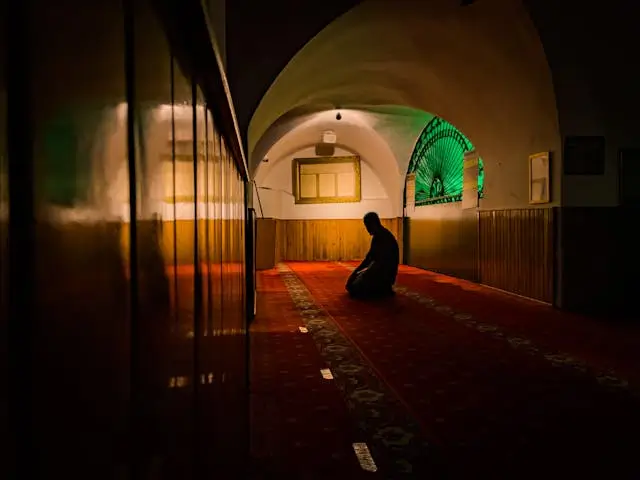What is Deen in Islam? Understanding Its True Meaning and Significance
Islam is often described as a complete way of life, and at the heart of this way of life lies the concept of Deen. Many people mistakenly translate Deen as simply “religion,” but in Islam, it encompasses much more—it is a holistic system that governs faith, behavior, morality, and social conduct. This article explores the full meaning of Deen, its Quranic foundations, practical implications, and why understanding it is essential for every Muslim.
Etymology and Linguistic Meaning of Deen
The Arabic word Deen (دين) comes from the root letters d-y-n, which broadly convey ideas of obedience, submission, accountability, and judgment. Classical Arabic lexicons describe Deen as a comprehensive system that guides a person’s spiritual, social, and moral life.
In its simplest sense, Deen reflects how a person submits to Allah’s will and aligns their life with His guidance. However, this submission is not limited to rituals or beliefs—it encompasses ethics, law, and interpersonal responsibilities.

Deen in the Qur’an
The Qur’an mentions the term Deen in multiple contexts, highlighting its rich and layered meanings:
1. Deen as Religion or Faith
Allah says in the Qur’an:
“Indeed, the religion with Allah is Islam.” (Surah Al-Imran 3:19)
Here, Deen refers to a path of faith and submission to Allah. It encompasses belief in Allah, the Prophets, the Qur’an, and the guidance provided by Islam.
2. Deen as a Way of Life or System
Deen also implies a complete system that regulates personal and social conduct. It guides how Muslims interact with family, community, and society at large. This includes ethics, law, social justice, and economic dealings, ensuring life is structured according to divine guidance.
3. Deen and Accountability
The Qur’an frequently links Deen with accountability, such as in Yawm al-Deen (Day of Judgment), where every person’s actions are evaluated:
“On the Day of Judgment, all people will be judged according to their deeds.” (Surah Al-Zalzalah 99:7-8)
Thus, Deen is not only belief but also the actions and responsibilities that flow from that belief.
Key Dimensions of Deen
Understanding Deen fully requires recognizing its multi-dimensional nature:
- Submission to Allah: Deen begins with acknowledging Allah’s sovereignty and submitting to His commands.
- Faith and Practice: Iman (faith) and Islam (practical action) are inseparable. One’s beliefs must be reflected in deeds.
- Moral and Social System: Deen provides guidelines for ethical behavior, social justice, and human interactions.
- Spiritual and Emotional Wellbeing: Deen fosters inner peace, mercy, compassion, and love for Allah and His creation.
Deen vs Religion: Why “Deen” Is Broader
In English, “religion” is often understood narrowly as rituals, beliefs, and worship. Deen, however, is much broader. It includes:
- Personal spirituality – faith and devotion
- Ethical conduct – honesty, generosity, patience
- Social responsibility – justice, community service, lawfulness
- Political and economic guidance – lawful transactions, governance principles
Deen is therefore a comprehensive life system, not just a set of rituals.
Practical Implications of Deen in Daily Life
Living Islam as Deen means that every part of a Muslim’s life reflects obedience to Allah:
- Daily worship: Salah, fasting, and other acts of devotion
- Moral decisions: Honesty in business, kindness to neighbors, patience in adversity
- Social interactions: Justice, compassion, and helping the needy
- Personal development: Learning, reflection, and nurturing positive character traits
In essence, practicing Deen means integrating faith into thoughts, words, and actions, making Islam a living reality in every sphere of life.
Common Misconceptions about Deen
- Deen is only belief or rituals – False. Deen is both belief and action.
- Deen is separate from worldly life – False. Islam provides guidance for personal, social, and economic matters.
- Faith and actions can be separated – False. Deen requires faith to manifest in righteous deeds.
By correcting these misconceptions, Muslims can understand and live the full scope of Deen.
Conclusion: Embracing the Full Scope of Deen
Deen in Islam is faith, action, ethics, law, and holistic guidance. It is not limited to rituals or private belief but extends to all aspects of life—personal, social, and moral. Understanding Deen allows Muslims to live Islam fully, nurturing a life of spiritual, ethical, and social harmony.
By embracing the true meaning of Deen, one can align every aspect of life with Allah’s guidance, attaining blessings in this world and the next.
FAQs About Deen Islam
What is the meaning of Deen in Islam?
Deen refers to the complete way of life that governs a Muslim’s faith, actions, morals, and social conduct.
How is Deen different from religion?
Deen is broader than religion—it includes belief, worship, ethics, social justice, and daily life.
Does Deen include social and political life?
Yes, Deen provides guidance for ethical social conduct, law, and governance.
What is “Yawm al-Deen”?
It is the Day of Judgment when every person’s deeds are evaluated by Allah.
Can actions be part of someone’s Deen?
Absolutely. Faith in Allah must be reflected through righteous actions, ethics, and obedience.







